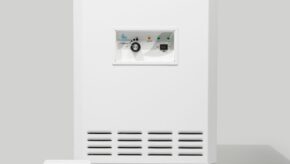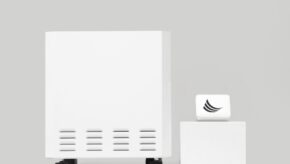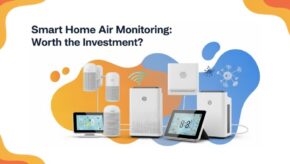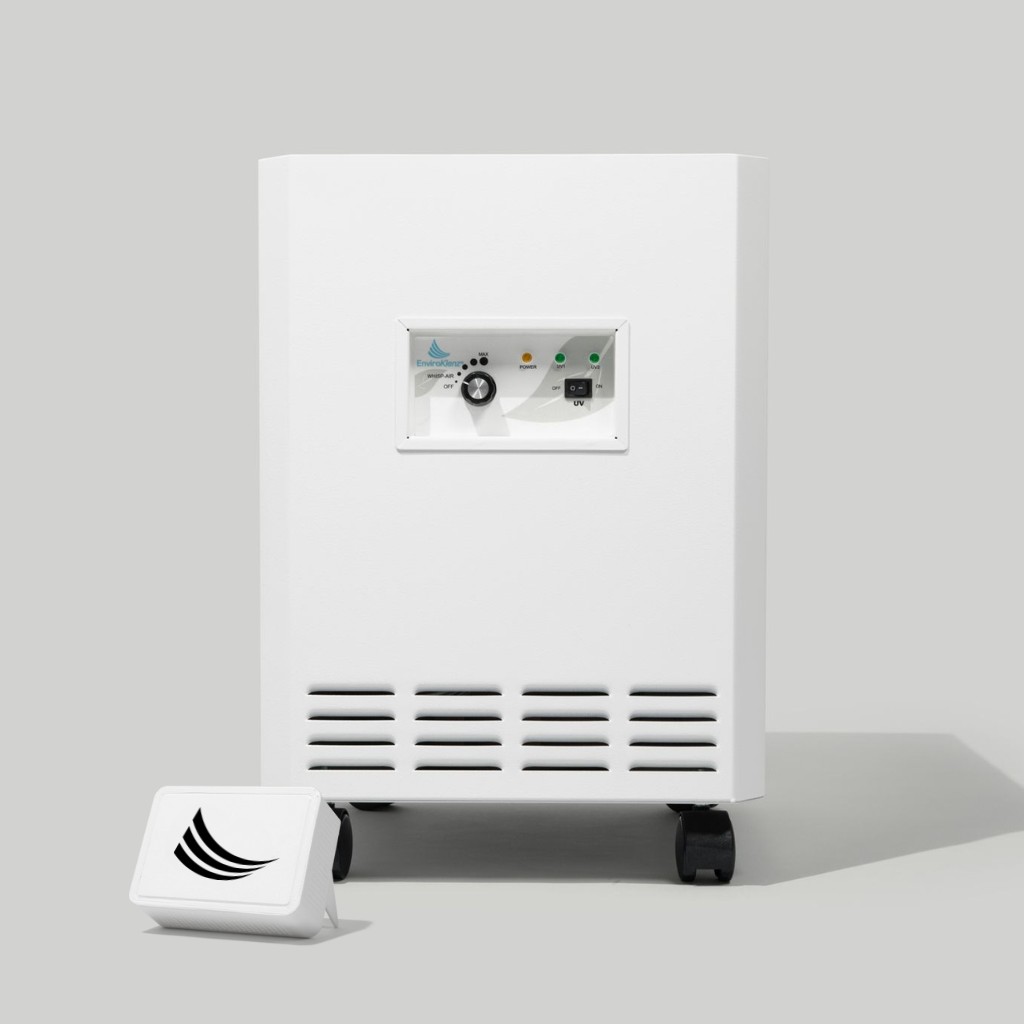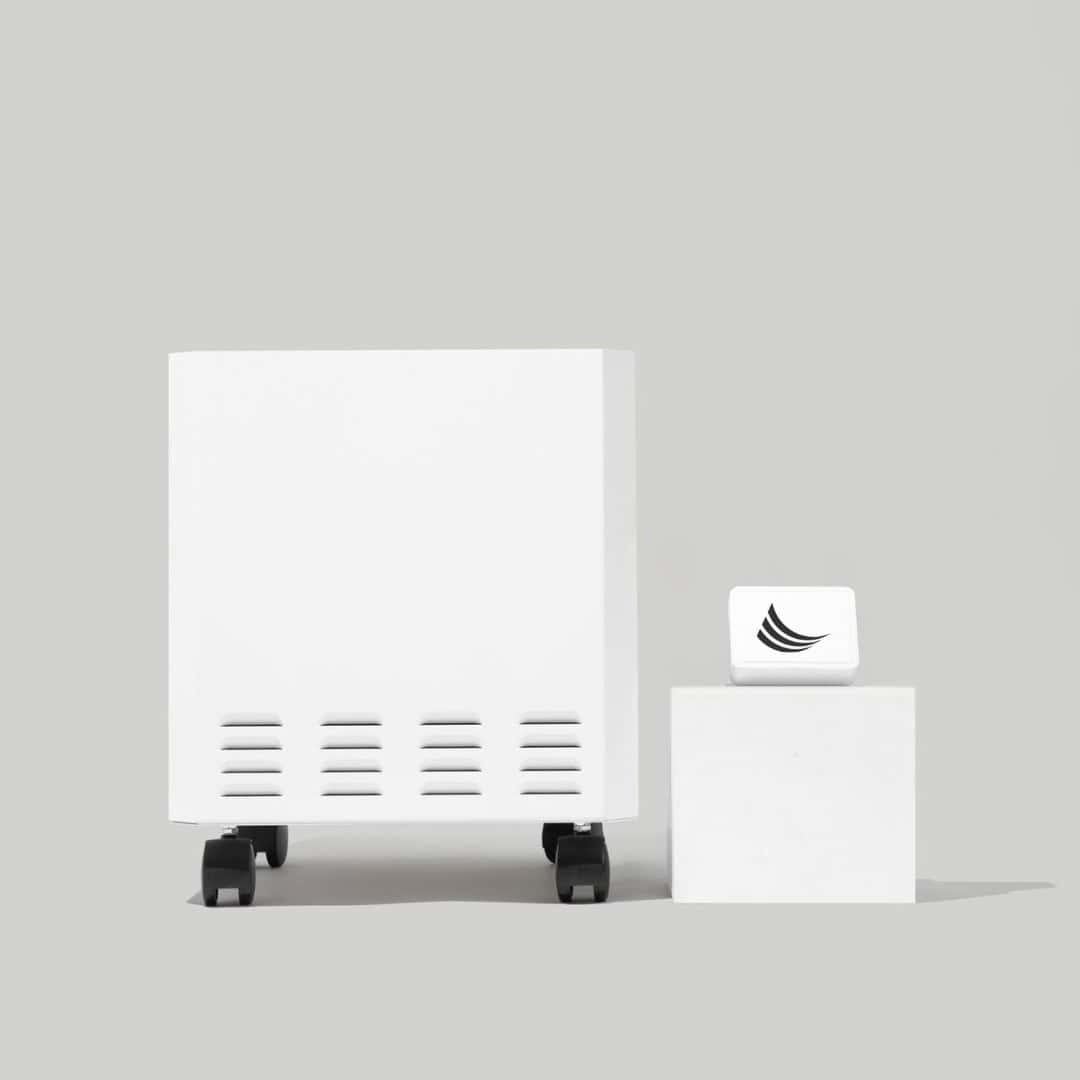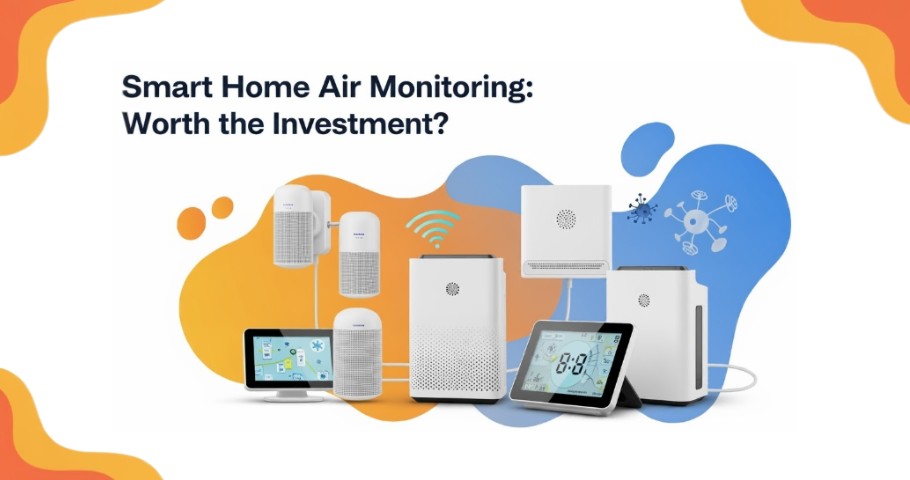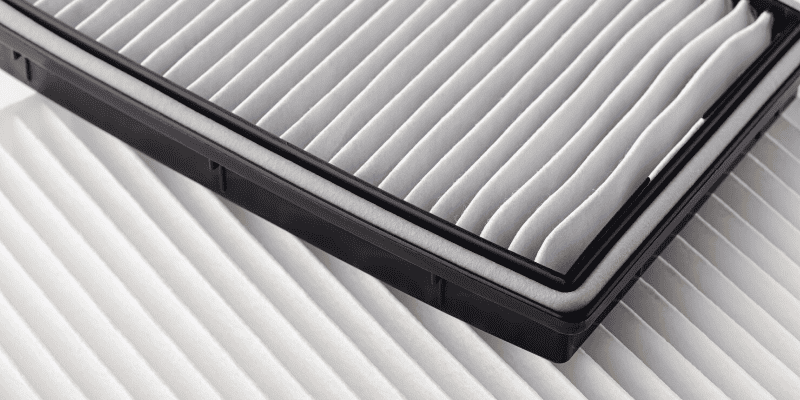Pollutants will freely float throughout the air, easily flowing from one area to the next slowly tainting the indoor air quality within the space of your home or other personal indoor environment. These pollutants can come from an array of different sources, depending on the specific area and the items that are heavily used within this confined space. Home’s, for example, are exposed to an alarmingly high number of pollution sources, and many of these sources will come as a complete shock to the homeowner who unsuspectingly uses a certain product in their home without understanding the impact it can have on their indoor air quality. From air fresheners, to flooring, candles, and even laundry care products can all be different sources of pollution inside of a home, and when these items are frequently used it will only lead to an overabundance of airborne pollution in the air that will need to be properly mitigated.
When it comes to removing airborne pollutants from the air of your home, often times the conditions in this environment will do little to help flush out these pollutants. Improper ventilation in a home can be a major cause of elevated levels of pollutants in the air, and thus if you live in a home where this is the case it may be best to invest in a quality air filter that will work to remove airborne pollutants, like a HEPA filter. A HEPA filter is one of the most well-known, and highly effective air filters for fine particulate matter removal from the air space of an indoor environment.
In this article we are going to learn more about how a HEPA filter works to filter pollutants from the indoor air, how durable these filters are, and if you should start to use a HEPA filter in your home.
What is a HEPA Filter
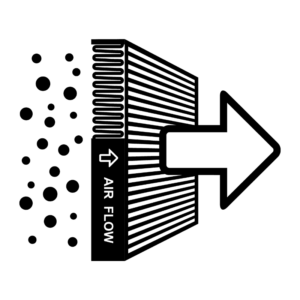 High-efficiency particulate air, also known by many as a HEPA filter is a type of filtration that is used in both air handling systems and/or stand-alone air purifiers inside of an indoor environment. These filters are usually used within a home or other indoor space to provide an effective filtration of fine particulate matter from the air, even the smallest of particulates (as small as 0.3 microns in size). Pollutants are measured in microns and this is the form of measurement that is used to explain the capability of HEPA filters in capturing pollutants within the fiber media of this filter. To illustrate the size of a pollutant in microns, a human hair will vary between 17 to 181 microns in size, whereas viruses can range between 0.005 to 0.3 microns.
High-efficiency particulate air, also known by many as a HEPA filter is a type of filtration that is used in both air handling systems and/or stand-alone air purifiers inside of an indoor environment. These filters are usually used within a home or other indoor space to provide an effective filtration of fine particulate matter from the air, even the smallest of particulates (as small as 0.3 microns in size). Pollutants are measured in microns and this is the form of measurement that is used to explain the capability of HEPA filters in capturing pollutants within the fiber media of this filter. To illustrate the size of a pollutant in microns, a human hair will vary between 17 to 181 microns in size, whereas viruses can range between 0.005 to 0.3 microns.
A HEPA filter will work by effectively capturing airborne pollutants by pulling them into the fiber media of the HEPA filter material, which entangles the pollutants in a sturdy, tight web. The HEPA filter contains two layers, an outer layer and an inner layer that will both work effectively in the filtration process of the filter. The outer layer works as the basic filter by straining the air of pollutants and allowing these particulate matters to get stuck in the filter media. The inner layer consists of a folded material of fine glass threads of HEPA which compresses to form a filter media for pollutant removal.
What are HEPA Filters Made Of
A question that people often tend to have prior to purchasing a specific type of air filter is understanding what kind of material is used to make this filter and how it works to capture pollutants in your indoor air. Although most people know what a HEPA filter is and it’s effective capabilities of removing fine particulate matter from the air, they will likely not understand what material is used to construct this filter media of a HEPA. According to Made How, a HEPA filter is usually made using glass fibers that are created by passing molten glass or plastic through very fine pores in a spinning nozzle. This spinning nozzle will create the web material that allows for the HEPA filter to capture pollutants within the media of the filter and depending on the speed of the nozzle it will create a certain thickness of the HEPA filter media.
When it comes to HEPA filters compared to other air filters, the HEPA filters are made of thin fibers of glass, and these fibers of the filter are formed into a thick paper-like material that is pleated. Some HEPA filters can have as much as 40 square feet of folded filter material in the HEPA filter to capture a large quantity of particulate matter in the air.
HEPA Filter Material & Particle Size
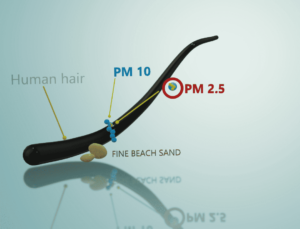 As we discussed previously, HEPA filters are usually composed of fiberglass which tends to have the highest filter efficiency, along with the highest pressure drop. However, in addition to the use of fiberglass material in HEPA filters, some HEPA’s will also use non-woven fabric material in its construction. This non-woven fabric material usually is composed of a polypropylene throughout the filter material. Polypropylene is a fiber material that has been known for its toxic nature and risks to public health that will contribute to an array of health effects from endocrine disruptors to irritation the mucous membranes, according to EcoWatch. There are other materials that can also be used in HEPA filters that will be less hazardous such as fiberglass, which is the prominently used material in HEPA filters today, but it’s important to look into this before purchasing a HEPA filter.
As we discussed previously, HEPA filters are usually composed of fiberglass which tends to have the highest filter efficiency, along with the highest pressure drop. However, in addition to the use of fiberglass material in HEPA filters, some HEPA’s will also use non-woven fabric material in its construction. This non-woven fabric material usually is composed of a polypropylene throughout the filter material. Polypropylene is a fiber material that has been known for its toxic nature and risks to public health that will contribute to an array of health effects from endocrine disruptors to irritation the mucous membranes, according to EcoWatch. There are other materials that can also be used in HEPA filters that will be less hazardous such as fiberglass, which is the prominently used material in HEPA filters today, but it’s important to look into this before purchasing a HEPA filter.
HEPA filters are known for their keen ability to remove fine particulate matter from the air, including very fine matter that will be found floating in your indoor air. This type of filter will work efficiently to remove the fine particulate matter from the air, that other filters will be inept to remove using their filter media. The pleated material of the HEPA filter, along with the thickness of the filter media will allow this type of filter to remove at least 99.97% of dust, pollen, mold, bacteria, and any airborne particles with a size of 0.3 microns. Microns are the form of measurement that is used to demonstrate the ability of air filters when it comes to the removal of pollutants from the air. To illustrate the range of sizes of an airborne pollutant when using micron measurements, a human hair will fall between 50 to 70 microns in diameter. Whereas dust, pollen, mold, and combustion particles will fall under 3 microns in size and in some instances even smaller than that in size.
What is a HEPA Filter Used for
There is a versatile use for HEPA filters and filtration inside indoor environments, from homes to hospitals, laboratories, aircrafts, and even cars. These indoor spaces are important to filter due to their heavy use, recycled air within these areas, and even the potential hazardous pollutants that can be produced in this space. Originally, HEPA filters were designed to be place in nuclear facilities and hospitals, to help protect workers and in hospitals patients as well from potential threats in the air. Nuclear facilities produce radiated airborne particles that can be dangerous if inhaled into the human body, which made this environment the ideal place to implement this superior type of air filtration. Similarly, a hospital is also an environment where there are many airborne pollutants that can be dangerous if inhaled into the body such as viruses, bacteria, and other diseases that can be spread through airborne pollutants. Thus, making a HEPA filter an excellent resource inside of a number of industries and commercial environments.
In recent years, however, HEPA filters have begun to get integrated into indoor personal environments like homes, where allergy sufferers are looking for relief from their symptoms. Those individuals who deal with allergies and asthma will be majorly affected by dust, pollen, and dander that can be present in the indoor air of a home. The HEPA filter will be efficiently capable of removing all of these allergens from the air and make a more tolerable and cleaner indoor air space for these individuals with allergies and/or asthma.
Can You Wash a HEPA Filter
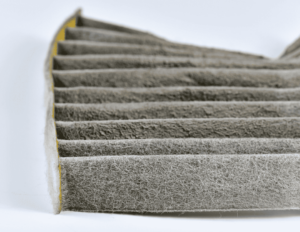 The life of a HEPA filter is often a major question when it comes to using this type of a filter in an indoor environment like a home. HEPA filters will generally last for quite a while in the air of an enclosed space, depending on the conditions within this indoor environment – like how many occupants are in the home, the number of pets, levels of pollution in the air, and the ventilation within the environment. Typically, you can bank on a HEPA filter lasting for about 2 to 3 years, based on the manufacturer’s recommendation. However, is it possible to increase the life of your HEPA filter in your home’s air by washing the HEPA filter and removing dust and dirt buildup on the filter media?
The life of a HEPA filter is often a major question when it comes to using this type of a filter in an indoor environment like a home. HEPA filters will generally last for quite a while in the air of an enclosed space, depending on the conditions within this indoor environment – like how many occupants are in the home, the number of pets, levels of pollution in the air, and the ventilation within the environment. Typically, you can bank on a HEPA filter lasting for about 2 to 3 years, based on the manufacturer’s recommendation. However, is it possible to increase the life of your HEPA filter in your home’s air by washing the HEPA filter and removing dust and dirt buildup on the filter media?
Washing a HEPA filter may sound like a great idea, but in reality, it can really be creating more damage to your HEPA filter than helping it to increase its longevity in your air purifier. A study that was conducted by Smart Air found that washing a HEPA filter will decrease its effectiveness by an average of 32%. This inefficiency happens due to the damaging of the fibers of the HEPA while washing the filter, which will limit its ability to capture the particulate matter in the air.
Benefits of HEPA Filter
The list of benefits that a HEPA filter provides to the indoor air space of a home or other personal indoor environment is vast, and thus the popularity of these highly efficient air filters in many air purifiers. HEPA filters, as we discussed prior, are particulate removing machines that will work to capture and remove even the smallest of particulate matter from the air, as small as 0.3 microns in size. Particulate matter that is considered to be fine particles smaller than PM2.5 are known to provoke a variety of health effects when ingested or inhaled into the human body, as these pollutants can travel inside the human body and reach the deepest recesses of the lungs in some cases.
In addition, HEPA filters will also help to protect the indoor air quality within a home which will contribute to a healthier environment. When there is less pollution in the air of your home’s air it will lead to less exposure to pollutants, especially since the EPA has estimated that most Americans spend close to 90 percent of their time in indoor environments like a home.
HEPA vs True HEPA
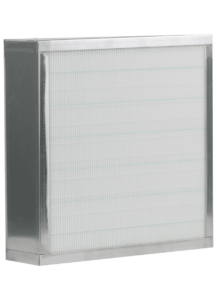 Have you ever heard of a True HEPA when talking about HEPA filtration for your home’s indoor air? Some people may think that a HEPA filter is also known as a True HEPA, however, there are some distinctive differences between these two HEPA filters that distinguish one from another when talking about filtration capabilities. When it comes to determining the difference between True HEPA’s and HEPA filters, the major difference will be its efficiency in the air. A HEPA filter is often limited to 85 to 90 percent efficiency in removing airborne pollutants from the air. Whereas it is said that a True HEPA has the ability to capture pollutants at a 99.97 percent efficiency, which demonstrates its superior ability to capture most particulate matters in the air.
Have you ever heard of a True HEPA when talking about HEPA filtration for your home’s indoor air? Some people may think that a HEPA filter is also known as a True HEPA, however, there are some distinctive differences between these two HEPA filters that distinguish one from another when talking about filtration capabilities. When it comes to determining the difference between True HEPA’s and HEPA filters, the major difference will be its efficiency in the air. A HEPA filter is often limited to 85 to 90 percent efficiency in removing airborne pollutants from the air. Whereas it is said that a True HEPA has the ability to capture pollutants at a 99.97 percent efficiency, which demonstrates its superior ability to capture most particulate matters in the air.
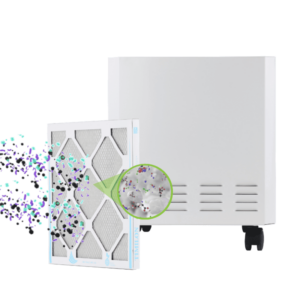 It is important to look for a HEPA filter in an air purifier that is able to effectively capture at least 99.97 percent of airborne pollutants in its filter media. Air purifiers will use a variety of filters within their specific air purifier, some use carbon filters, ozone generators, ionization, and HEPA filters to remove pollutants from the air. However, the EnviroKlenz Mobile Air System is a unique air purifier that contains a patented air filter technology, along with the use of a hospital-grade HEPA filter that will filter out 99.99 percent of particulates from the air. The EnviroKlenz technology is a patented earth mineral technology that is able to capture, contain, and neutralize a wide array of noxious and toxic chemicals and odors from the air, all through the use of a safe, nontoxic technology. In addition, the hospital-grade HEPA filter inside of this air purifier is a top-quality filtration that allows for 99.99 percent of pollutants to be removed from the air that are larger than 0.3 microns in size. Thus, this air purifier will provide your indoor air quality with noxious and toxic chemical and odor elimination, as well as fine particulate matter removal.
It is important to look for a HEPA filter in an air purifier that is able to effectively capture at least 99.97 percent of airborne pollutants in its filter media. Air purifiers will use a variety of filters within their specific air purifier, some use carbon filters, ozone generators, ionization, and HEPA filters to remove pollutants from the air. However, the EnviroKlenz Mobile Air System is a unique air purifier that contains a patented air filter technology, along with the use of a hospital-grade HEPA filter that will filter out 99.99 percent of particulates from the air. The EnviroKlenz technology is a patented earth mineral technology that is able to capture, contain, and neutralize a wide array of noxious and toxic chemicals and odors from the air, all through the use of a safe, nontoxic technology. In addition, the hospital-grade HEPA filter inside of this air purifier is a top-quality filtration that allows for 99.99 percent of pollutants to be removed from the air that are larger than 0.3 microns in size. Thus, this air purifier will provide your indoor air quality with noxious and toxic chemical and odor elimination, as well as fine particulate matter removal.
Article Sources:
- MadeHow: Air Purifier (link)
- EcoWatch: 7 Types of Plastic Wreaking Havoc on Our Health (link)
- Smart Air: Can You Clean or Wash HEPA Filters? (link)
- Environmental Protection Agency (EPA): Indoor Air Quality (link)
Mobile Air System
✓ Patented earth mineral technology works to attack VOCs and break them down on a compound level
✓ No chemicals or masking agents
✓ Will not release any chemicals back into your environment
✓ Safer and faster at removing VOC’s than traditional carbon filters and PECO air purifiers
